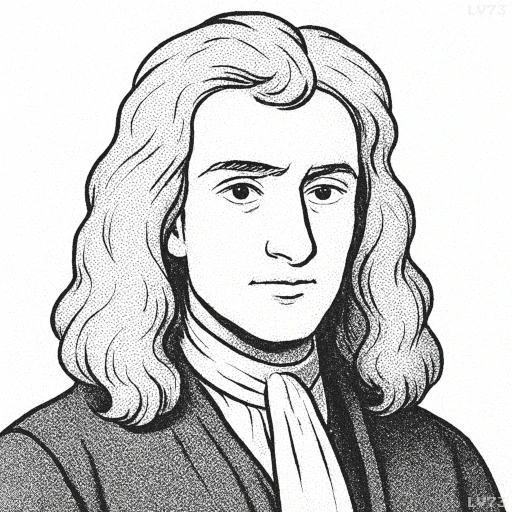“What goes up must come down.”

- January 4, 1643 – March 31, 1727
- Born in England (UK)
- Natural philosopher, mathematician, physicist, astronomer, theologian
table of contents
Quote
“What goes up must come down.”
Explanation
This famous phrase reflects Newton’s third law of motion and the law of gravity in its simplest form. The statement suggests that any object that is thrown or propelled upwards will eventually return to the ground due to the force of gravity pulling it back down. This idea is rooted in the fundamental principle that gravity exerts a constant force on all objects with mass, pulling them toward the Earth. While the phrase is often used informally to convey the inevitability of things returning to their original state or position, it is grounded in Newton’s scientific understanding that force (like gravity) dictates the behavior of objects in motion.
Newton’s development of the laws of motion and universal gravitation in the 17th century made this idea a cornerstone of classical mechanics. According to Newton’s law of universal gravitation, every object with mass attracts every other object with mass with a force that is proportional to their masses and inversely proportional to the square of the distance between them. This attraction is what causes objects to fall back to the Earth when thrown upwards, as the force of gravity acts on them.
In modern terms, this phrase continues to be relevant in discussions about physics and the principles of motion. It reminds us of the predictable nature of motion and the dominance of gravity in our everyday experiences. Today, while more advanced theories like general relativity describe gravity with greater complexity, Newton’s law of gravity still provides the most accurate predictions for most everyday scenarios. This phrase encapsulates the universality of the gravitational force, demonstrating how even in the simplest of actions, like throwing a ball into the air, the fundamental laws of physics govern our world.
Would you like to share your impressions or related stories about this quote in the comments section?
